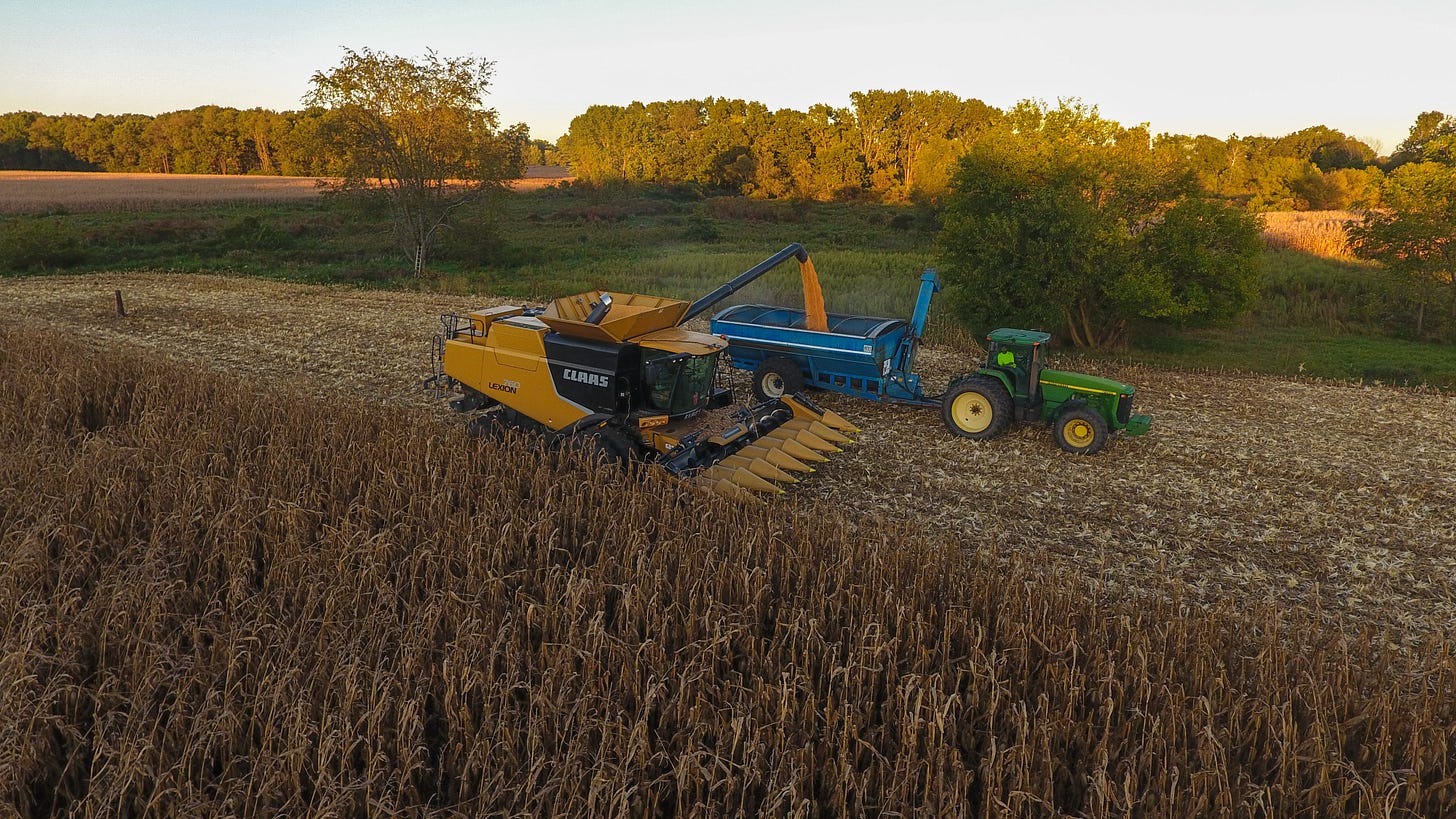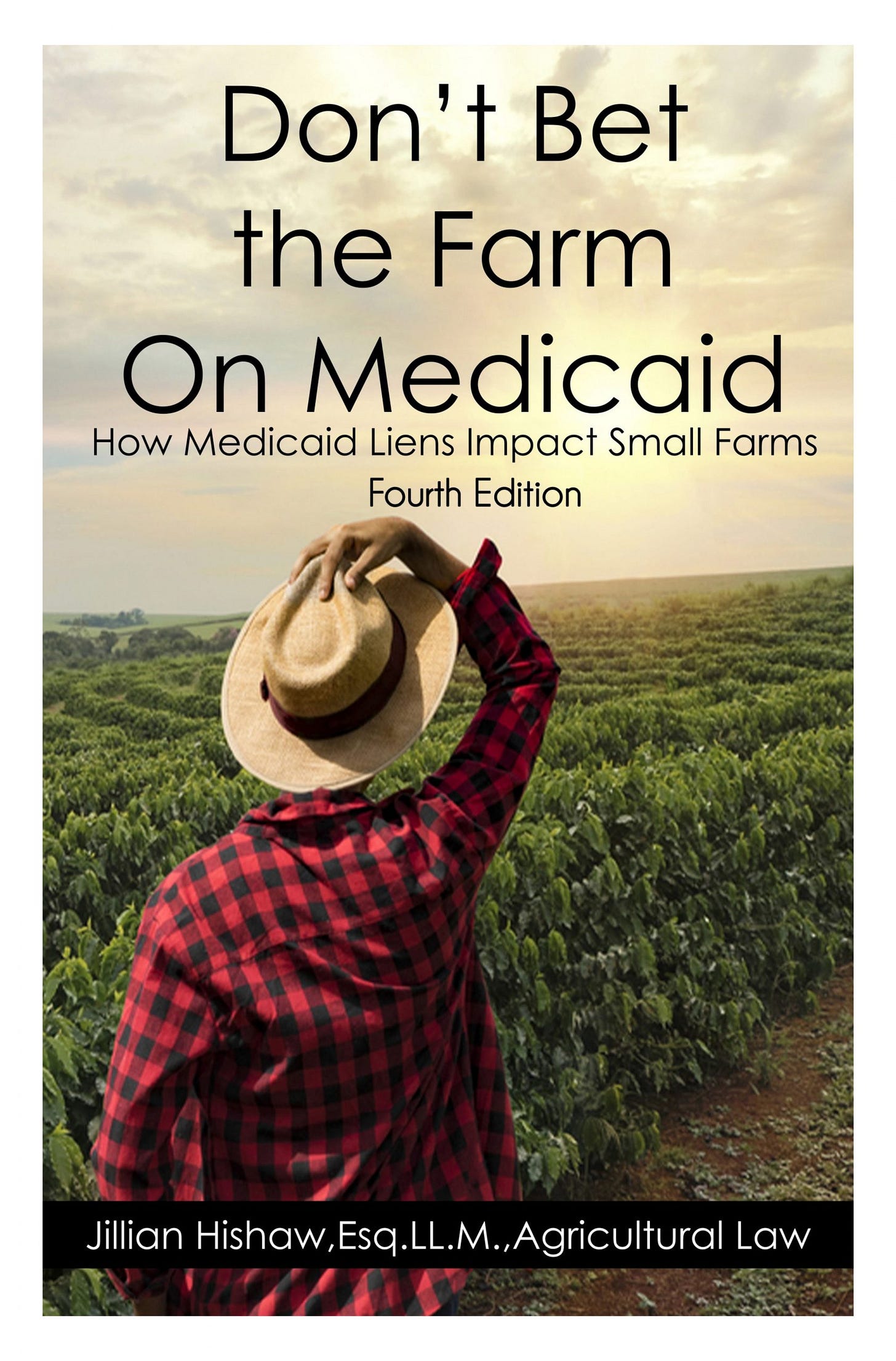Medicaid Is Not Free — It’s a Loan
How This Can Be Particularly Disastrous for Farm Property Owners
Ponder this scenario: A farmer or rancher who is on Medicaid receives extended medical care. He suddenly becomes frail and therefore can no longer live alone. His wife has died, and his kids, who now help run the farm from dawn to dusk, just to keep it going, are unable to stay home and care for him.
Worst case scenario, the farmer’s deteriorating health necessitates a move to a long-term care facility or nursing home. Yet he doesn’t have the financial means to pay for these costs. If he qualifies for the Medicaid program to help pay for the care, the state he resides in could force the sale of the farm in order to recoup the costs.
Therein lies the predicament of a growing number of our nation’s farmers:
A congressional mandated system designed to recover the costs of medical care can lead to a complete wipeout of one’s assets, including a home and in the case of a farmer, their farm property. This can have a particularly perilous impact on low-income families and people of color.
Jillian Hishaw, an agriculture and land protection lawyer and author of the book “Don't Bet The Farm on Medicaid” has seen this scenario play out far too often, one where unsuspecting low-income farmers on Medicaid expect that their care is free. Problem is, it’s typically not. Rather it is a loan that the government expects to be repaid.
Historically, Medicaid liens on real property of deceased recipients have been permitted since the program’s genesis in the 60’s. Moreover, living recipients have been subjected to this in limited circumstances since 1982.
According to U.S. Department of Agriculture census data, the average age of a U.S. farmer is nearly 60 years old. As growing numbers seek health care coverage through Medicaid, the need to protect one’s property is often overlooked until a long-term health care condition requires one to tap into its benefits.
Often, these farmers have significant wealth in the land they have owned and cultivated over the years. This leads to questions as to how to prevent the loss of this land when these scenarios surface so that it can be passed onto future generations.
A former USDA Adjudicator and Founding Director of Family Agriculture Resource Management Services (F.A.R.M.S.), a national nonprofit that provides technical and legal services to aging small farmers, Hishaw asserts in her book that it’s important for those who could be potentially impacted to understand how Medicaid liens work in relation to debt owed to long-term care facilities. She also strongly advocates the need for asset protection — before it's too late.
Hishaw says that it’s incumbent upon farmers who may eventually find themselves needing long term care to engage in proper estate planning far in advance of applying for Medicaid to ensure that they are protected against a potential lien.
Says Hishaw when asked about what sparked her decision to write “Don’t Bet The Farm On Medicaid”:
“I wrote the book after several farmers started telling us about elder farmers who had lost their homes and land to a local nursing home. Since this fits with the area of law that I practice, I wrote and published the first edition of the book in the Spring to 2018. Now in its 5th Edition the book has saved many older landowners from losing their property.”
She adds that the book is updated every year since the Medicaid provisions are always updated on July 1st.
“Each year I add additional states, so far there are a total of 24 states included in the Fifth Edition of the book.”
In terms of how Medicaid liens and seizures have historically fit into the broader narrative of historic discrimination that Black farmers have faced in terms of their land and property, Hishaw added this
“The issue is common but it's not just a Black farmer problem, it is a regulatory challenge when it comes to low-income property owners. In terms of Black farmers this is just one of many reasons why Black farmers lose land but the main issue for Black land loss is predatory lending terms and lack of proper estate planning.”
Hishaw is quick to point out some important things that farmers commonly overlook in protecting their property and assets when qualifying for Medicaid:
“It’s important to ensure that the title and the deed is out of the farmer’s name as owner at least five years prior to applying for Medicaid. Moreover, a life estate needs to be executed for the property which will allow the farmer to still qualify for Medicaid and reside in their home whether they live in the city or on a farm. These are among the many preventive measures I cover in my book.”
The book, says Hishaw, is also sparking new conversations about efforts on the part of states to recoup benefits paid to a recipient from their estate? She notes:
“Several years ago I visited with a few legislators to inform them about their issues regarding Medicaid recovery. A year later the law was changed in favor of the property owners. I don't know if this was the result of my visit or the copy of the books I gifted them but I was glad to see that the laws in a few states were updated in a way that was more favorable for these landowners.”
She offers this concluding thought:
“I recommend readers purchase my books and start advanced Medicaid planning to protect their home and land from a nursing home lien. The key is hiring an experienced and honest attorney to guide you through the process.”
“Great Books, Great Minds” is my full-time work and life passion, a labor of love fueled by the endless hours of work I put into researching and writing these feature pieces. So if you enjoy this digital newsletter, find it valuable, and savor world-class book experiences featuring epic authors and book evangelists, then please consider becoming a paid supporting member at $6.00 a month or $60.00/year.
Thank you for your support! In the meantime, stay thirsty for a great book







Wow. Yet another way that lower income, people of color can get scalped, via the very same system we thought was there to help.